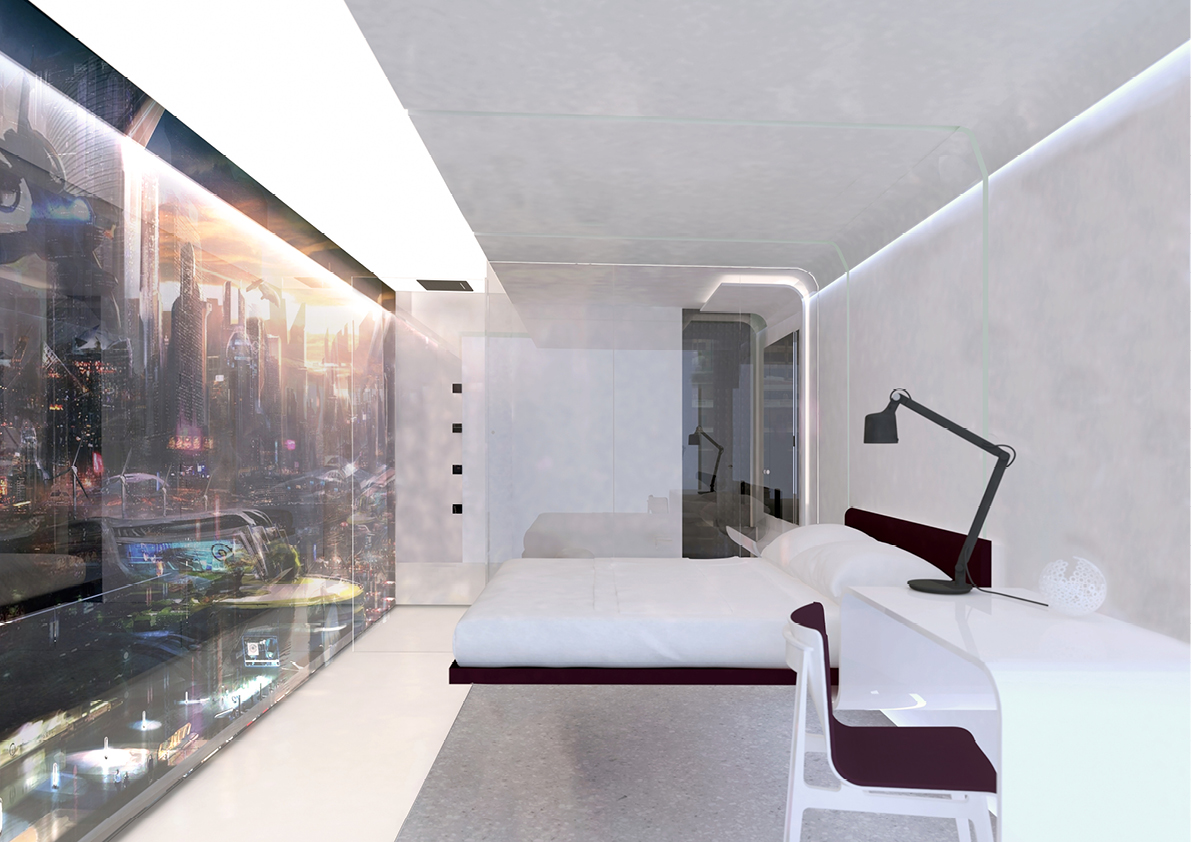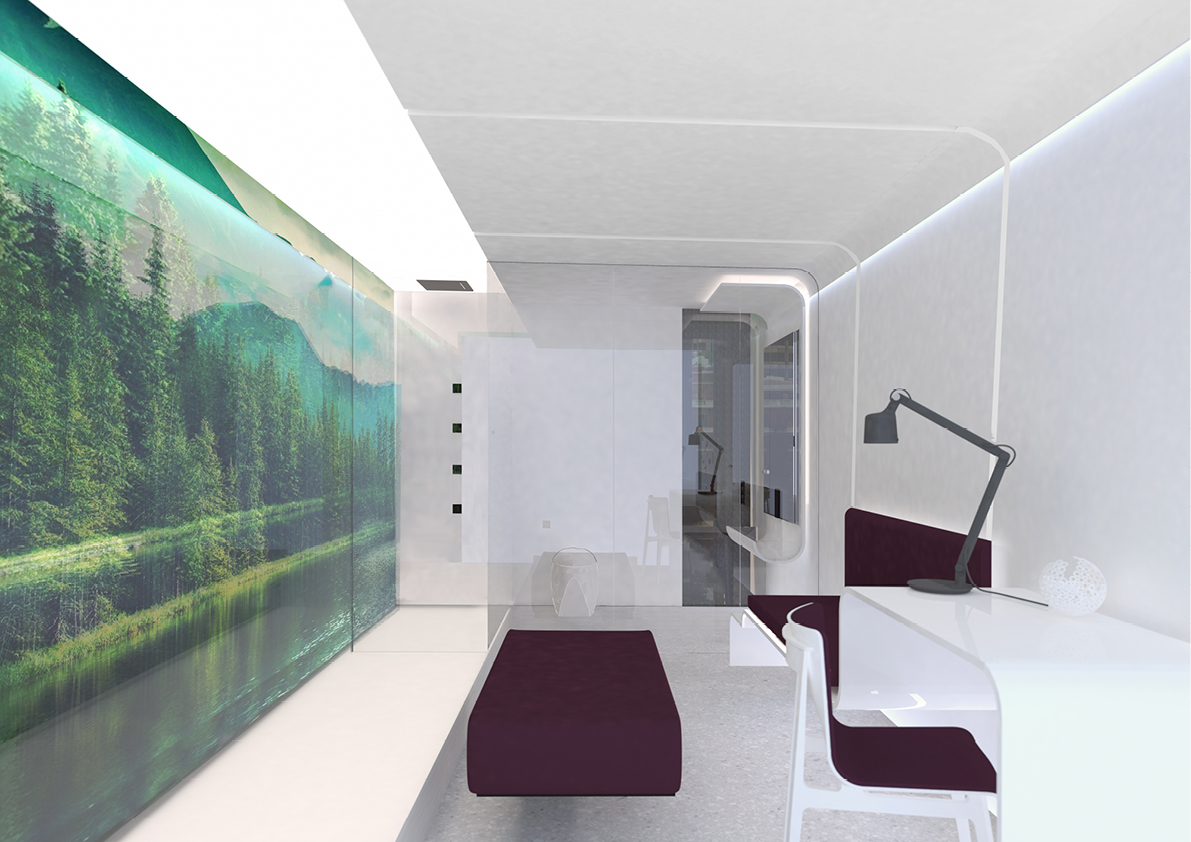From facial scanning entry systems to interactive mirrors, trendy capsule hotel group Yotel reveals predictions for the hotel room of the future. Emily Eastman reports.
When Yotel conducted a national survey of more than 2,000 frequent travellers at the end of last year, the results revealed what guests hope to see in the hotel of the future. The findings were combined with expert predictions and handed over to designers, who rendered images based on the results.
Within the next 30 years, 88 per cent of guests surveyed expect traditional room keys to be ditched in favour of facial recognition for room access, while 81 per cent forsee in-room augmented reality functions that would enable them to speak face-to-face with friends and family.
Room service is also tipped to become more intuitive, with 79 per cent of respondents hoping the hotel will invest in artificial intelligence that will know the kind of food and drink individuals might want to order. (Yotel doesn’t offer room service but at its New York property it has a food-to-go option that allows guests to order from Green Fig, to pick up and eat in their cabins.) Yotel undertook the survey to identify what British travellers want and expect from their future hotel accommodation. The results are helping the brand to define what it needs to focus on in the coming decades to ensure guests return.
Yotel undertook the survey to identify what British travellers want and expect from their future hotel accommodation. The results are helping the brand to define what it needs to focus on in the coming decades to ensure guests return.
When asked what was most important to them in a hotel room, almost three quarters of British travellers (73 per cent) ranked the bed as the highest priority, followed by the bathroom (53 per cent).
Yotel CEO Hubert Viriot says: “Even with all the talk of smart features, interactive technology and augmented reality, it’s not gimmicks that travellers of tomorrow expect to see. For us, it confirmed our designer’s core belief that efficient and helpful technology should seamlessly support an exceptional overnight stay.”
With eco-travel and environmental concerns firmly in the national psyche, sustainability perhaps unsurprisingly ranked highly among survey respondents – 69 per cent said they do not want to see single-use plastic in the hotel of the future.

To save and create daytime space (Yotel cabins can be as small as 7 sqm and most don’t have windows), 72 per cent said the bed could retract into the roof and use AI to monitor the health of guests. The same number wanted interactive mirrors that enable them to try different looks virtually, while 74 per cent wanted a personalised virtual concierge assigned to them.
The same number wanted interactive mirrors that enable them to try different looks virtually, while 74 per cent wanted a personalised virtual concierge assigned to them.
“Space is already a commodity and that’s likely to increase in the future, so space efficiency is key,” Viriot says. “We expect to see more compact spaces showcasing smart design.
“Equally, demand for real-estate is going to mean building closer together, limiting the light into a room which makes windows a primary feature, whether it’s letting light in or acting as an interactive digital display. Success in the future will depend on efficient design and non-invasive technology that augments the guest experience.”
Yotel’s brand philosophy is creating smart, design-led environments. The research falls under its commitment to research and innovation, and is the latest in a series of predictions from hotels and experts on what future properties will look like.
Yotel currently operates seven airport hotels in London Gatwick, London Heathrow, Amsterdam Schiphol and Paris, Charles de Gaulle, Istanbul Airport (two), Singapore Changi and seven city centre hotels in New York, Boston, San Francisco, Washington DC, Singapore, Edinburgh and Amsterdam.
Yotel is expanding rapidly with new projects under development globally, including in Porto, Glasgow, London, Dubai, Geneva, Long Island City, Miami, Park City, Mammoth, Atlanta and Melbourne. Yotel was created by YO! Sushi founder Simon Woodroffe OBE.
What’s coming next? Trend reports available to download HERE



